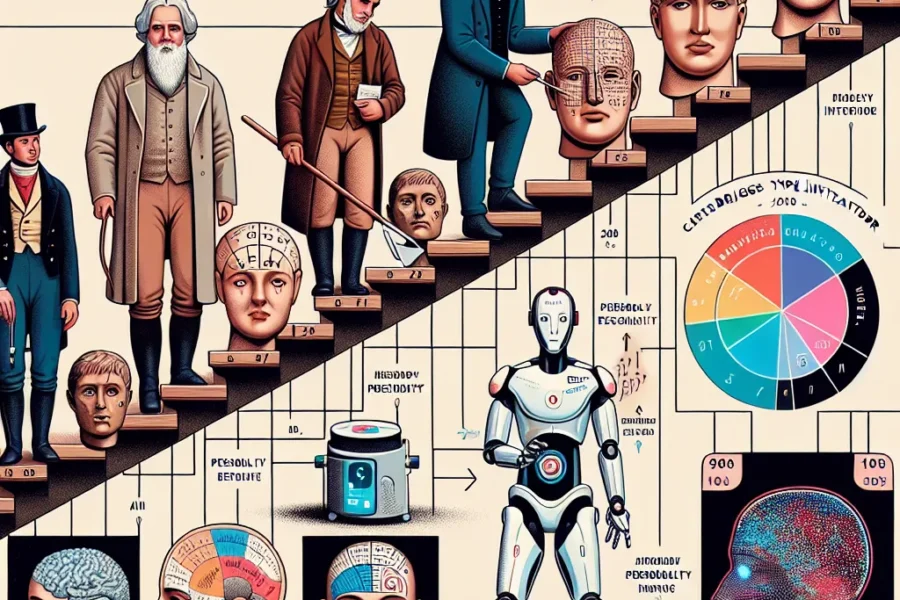Carl Rogers, a pioneer in the field of psychotherapy, revolutionized the way mental health professionals engage with clients through his development of the client-centered approach, also known as person-centered therapy. His groundbreaking ideas forged a new path in the understanding of the therapeutic process, emphasizing empathy, the therapeutic relationship, and the inherent potential of individuals to achieve personal growth. This article delves into the foundational concepts of Rogers’ innovative contributions to the field of psychotherapy, examining its enduring impact and relevance in contemporary practice.
At the heart of Carl Rogers’ revolutionary ideas is the belief in the client’s capacity for self-discovery and self-direction. This humanistic perspective diverged from the more analytical and interpretive approaches of psychoanalysis and behaviorism that had dominated psychology until Rogers’ emergence in the mid-20th century. A key component to understanding client-centered therapy is its focus on the individual’s subjective experience as the central point of therapeutic intervention, promoting personal growth rather than curing illness.
Rogers identified three core conditions that he believed were essential for effective therapy: empathy, congruence, and unconditional positive regard. Empathy, or the ability to deeply understand and share in a client’s feelings, builds a bridge between therapist and client, facilitating a safe and nurturing environment for self-exploration. Congruence, or genuineness, refers to the therapist’s authenticity, allowing them to be present and real with the client, further strengthening the therapeutic alliance. Lastly, unconditional positive regard involves accepting the client without judgment, thereby fostering a non-threatening space for personal development.
The concept of empathy in psychotherapy, as emphasized by Rogers, is pivotal in building a strong therapeutic relationship between the counselor and the client. Research has consistently highlighted the therapeutic alliance as a critical predictor of successful treatment outcomes. Rogers asserted that therapists should strive to understand clients from their unique perspectives, demonstrating acceptance and validating their feelings without imposing their own judgments or interpretations.
Congruence, according to Rogers, is about the therapist being true to themselves within the therapeutic context, modeling transparency and honesty. This alignment between the therapist’s inner experience and their outward responses can help to minimize the power dynamics often found in traditional therapist-client relationships, fostering a sense of partnership and equality.
Unconditional positive regard, perhaps one of Rogers’ most influential ideas, rejects the notion that clients should earn acceptance or approval. Instead, it supports the idea that individuals have the right to their feelings and experiences without fear of rejection or disapproval from the therapist. This approach helps clients feel safe to discuss their deepest fears, hopes, and dreams, opening up possibilities for meaningful personal transformation.
One of the most significant contributions of Rogers’ therapy is the emphasis on the self-concept – the organized, fluid, but consistent conceptual gestalt composed of perceptions of the characteristics of “I” or “me,” and the perceptions of the relationships of the “I” or “me” to others and to various aspects of life, and the values attached to these perceptions. Rogers’ work highlighted the importance of self-worth and the ways in which an individual’s view of themselves can impact their behavior, choices, and overall mental health.
Another key element of Rogers’ approach is its nondirective nature. Instead of offering advice or directing the client toward specific solutions, the therapist empowers the client to find their own answers. By providing a supportive environment, the client is encouraged to explore their thoughts and feelings openly, tapping into their own capacity for self-healing and decision-making.
The influence of Carl Rogers’ ideas extends well beyond individual therapy. His principles have been applied to group therapy, conflict resolution, education, and even organizational development. The person-centered approach has helped to humanize workplaces, enhance educational methodologies, and facilitate more peaceful negotiations in situations of conflict.
Research and studies on the efficacy of person-centered therapy have consistently shown its effectiveness in treating a wide range of psychological difficulties. These include depression, anxiety, personality disorders, and interpersonal relationship issues. The approach’s flexibility and adaptability have made it an invaluable tool for therapists working with diverse populations across various settings.
As with any therapeutic approach, critiques have been raised regarding the limitations of Rogers’ ideas. Some argue that the emphasis on the client’s autonomy may not be suitable for all individuals, particularly those with more severe mental health concerns who may require more directive interventions. However, these critiques have not overshadowed the impact and value of Rogers’ contributions to psychotherapy.
Today, Carl Rogers’ revolutionary ideas continue to resonate throughout the field of psychotherapy. The emphasis on empathy, authenticity, and the belief in human potential remain as relevant as ever in nurturing personal growth and facilitating meaningful therapeutic change. The person-centered approach offers a compassionate, empowering framework for both therapists and clients, honoring the complexity and dignity of the human experience.
As the field of psychotherapy evolves, integrating new techniques and technologies, the core principles established by Carl Rogers will invariably serve as a compass, guiding the therapeutic journey towards deeper understanding, respect, and acceptance. At the same time, these core principles provide a solid foundation for counselors and therapists to build upon, ensuring that the therapeutic process remains client-centered and focused on the unique needs and goals of each individual.
In conclusion, Carl Rogers’ revolutionary ideas in psychotherapy have left an indelible mark on the field, transforming practices and perspectives in mental health. His legacy of empathy, unconditional positive regard, and trust in the human capacity for self-guided growth continues to inform and inspire counselors, psychologists, and psychotherapists around the world. As we look to the future, it is certain that Rogers’ client-centered approach will endure as a seminal and vital influence in the art and science of therapy. With these principles at its core, psychotherapy stands as a testament to the enduring power of genuine human connection and the transformative potential of a respectful, nurturing therapeutic relationship.



Leave a Comment